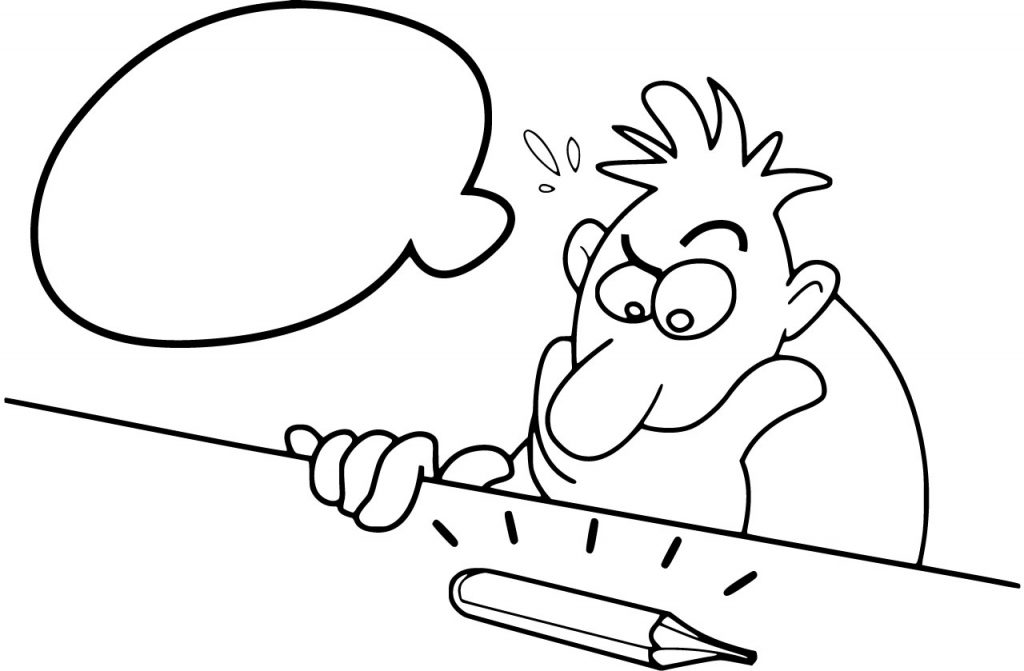Introductions are probably one of the most challenging obstacles for any professional researcher or student. It’s kind of like when you’re at Thanksgiving with your family and your uncle across the table asks, “Hey, so tell us about this project you’ve been working on.” Really, he’s asking, “Would you be able to summarize, with dinner-table appropriate brevity, the project that’s consumed upwards of four years of your life?” Conversational pressure cooker notwithstanding, this is analogous to the task of composing an introduction for a dissertation or a thesis.
You’ve had your head in your subject for several years, and now you must provide enough context so that even someone who’s not entirely familiar with what you’ve had to do over this time can jump into your work and follow along well enough to understand the gist of your research goals. Also, let’s not forget that these are the first pages (and, for some reviewers, the only pages) that your chairs and advisors are going to read while they’re weighing whether to approve what you’ve written so far.
It definitely doesn’t sound easy, and it’s not even as easy as it sounds–unless you know the secret recipe, of course.
After over a decade of working with students and professional researchers in the dissertation consulting business, we’ve developed several rules of thumb that are bound to help any writer compose the great introduction. This is a great asset for anyone involved in dissertation writing or thesis writing. And we highly encourage anyone doing this kind of work to consult with a dissertation coach as soon as possible.
1. Get Over Your Writer’s Block
Writer’s block is a challenge worth its own set of tips (and we’ll do just that in an upcoming blog post!). However, when it comes to discussing introductions, it’s worth noting how much of an impediment writer’s block can be, especially when considering the pressure you’re under to start with a bang. That said, here are the top three techniques to overcoming writer’s block for any project. As with anything, using one of these sometimes isn’t enough. What works for one person won’t always work for you, so if you attempt one of these techniques and find that that cursor is still giving you trouble, try another. You can also oscillate between different techniques, as sometimes a combination of these methods is the best recipe for an unclogged stream of consciousness.
For instance, you can try automatic writing–which is just putting your pen to paper (or your fingers to keys) and seeing what happens. Automatic writing isn’t so much about good or bad as it is about free. When your thinking is unfettered by value judgment, you can let the associations of the language cascade from thought to thought. This does a few things that are extremely palliative for anyone who’s struggling with writer’s’ block. First, it gets your fingers moving. It engages you in the simple act of writing, and that kind of motor activity can often stimulate the mind (which cognitively associates fast typing with a state of thought beneficial to writing).
Second, if you’re experiencing writer’s’ block, it’s very likely (unless this is your first time writing ever) that you’ve successfully finished a writing project before. Thus, overcoming your present writer’s’ block is more about overcoming a state of mind than anything else. And the best way to transition out of this state of mind is to convey thoughts and ideas that naturally carry you out of it. Automatic writing, of course, is a great impetus for this. Words are simply the vehicles for thought, and thought is a vehicle for your mental state. By developing a momentum of new ideas–caused by the free transition of one thought leading to another.
Getting past an uncreative mind is a great first step, but making sure that what you’re working on is in line with expectations of your university is another. You can always connect with one of our staff of professional dissertation consultants to discuss how you can turn your writing project around in a shorter time frame. This is especially helpful if you’re working under a time crunch, as getting over writer’s block takes time. As always, it’s best to seek out help when you need it.
We strongly suggest that you take a few proactive steps to ensuring that writer’s block doesn’t play too much of a role when you’re approaching your introduction, as we often hear this cited as one of the biggest obstacles when it comes to writing an introduction and to dissertation writing or thesis writing in general.
Because we’ve been working in the dissertation consulting business for a long time and have all of the tools you need when it comes to developing the perfect piece of writing. We have hands-on experience with numerous brick-and-mortar and online universities, all of which have their own guidelines and stipulations for dissertation format, etc. So it’s likely that we already have an intimate knowledge of your school’s handbook. 🙂
Feel free to email us or give us a call if you have any questions when it comes to developing your introduction and any other components of your thesis writing or dissertation writing. Even if you’re a statistician who needs help with your quantitative methodology or analysis, you can rest assured knowing that our company started out as a quantitative specialty firm, with that department headed by none other than Cambridge theoretical statistics alumnus Dr. Martin Barugel. That said, we’d be more than thrilled to leverage our extensive experience with statistical analysis to the benefit of your current project.
2. Don’t Start Out Too Wide
This is a common problem that many students face as they’re trying to work on their introductions. When many people are taught how to write academic essays, they’re taught that you need to start from general to specific. On the whole, this is a good rule of thumb. The only problem that students will run into here is that they’re never taught that you should never start out too general.
Let’s say you’re writing an essay about rock music in the 90s. Let’s say you’re writing about the influence of classic jazz and punk on ska (look it up, kids). You wouldn’t want to start out this essay with something like “Music is something that has always been cherished by humanity.” This is something we like to call, “Starting out too wide.”
Have you ever seen a movie? Okay, maybe that’s a little too broad, but that broadness is pertinent, given the subject of this tip. Think of a movie about a boxer. Rocky is the most famous one, of course. Let’s say you’re watching a movie like that. Well, the movie doesn’t begin with a shot of the planet. It begins with a shot of a boxing ring. Make sure that when you’re writing your essay, that you take care to start in a way where you’re not too far away from your subject.
Another way to help yourself get over the introductory hump to your dissertation writing or thesis writing is to work with a professional dissertation coach or editing service–someone who has a lot of in-depth experience when it comes to developing the foundational elements of a dissertation.
3. Stay Creative and Be Patient
That may seem like broad advice, especially given our last entry, but it’s important to remember that your introduction has to engage the reader. So, though you may be frustrated by the time it’s taking you to write your introduction, you should know that taking a few extra hours to craft something worth reading will pay dividends when it comes time for the review process. The best advice we can offer in these situations to our dissertation consulting clients is to not despair. Stick with it, and don’t worry that it’s taking too long for what may seem like just a few measly paragraphs, compared to the larger body of the work.
Additionally, while you’re taking the time to write your introduction, you should remember that some of the best introductions ever written were those that didn’t follow the typical formula prescribed by the academy. In fact, finding ways to integrate creative narrative elements can often be a great way to set your paper apart from those of your peers. That said, creativity is often your greatest ally when it comes to dissertation and thesis writing, so don’t be afraid to think outside of the box and feel inspired. After all, you’re taking a year of your life, roughly, to write this piece. You should make sure that it’s reflective of your intellect.
4. Focus on the Conflict
In the last entry from this list, we discussed how making sure that your introduction is the more creative aspect of your dissertation writing can be an important rule of thumb when it comes to starting a new project. And one thing that you’ll often hear from academic reviewers is that your work seems too much like a general summary, as opposed to a more analytical piece that addresses some key problem.
For many students writing their introduction, this can be a difficult obstacle to overcome, especially since one of the central goals of any introduction is indeed to summarize the issue being addressed by your study. However, there is a way to provide this necessary summary information without appearing too general in one’s descriptive preliminary discussion. And, as with the previous example of “starting too wide,” we need only look at an example of more creative storytelling to show us how we need to formulate a better introduction at the academic level.
For instance, what makes for a good story, and how does one begin to tell this story? In the boxing film we mentioned in item #2, did we start by just showing our boxer talking about typical humdrum–what he’s going to be doing on Monday, etc.? Of course not. The film highlights the protagonist’s conflict first and foremost. And even in films where there is a prologue describing some dystopian future where the rest of the film has been set (a la the Terminator), conflict is still the element that is put forth before anything else. Why is this the case?
Well, the simple answer is that conflict is interesting. Human beings are problem solvers, and many good stories are often just tales about human problems–how they appeared, how they can be overcome, and, sometimes, how they can overcome us. This is what interests us. Even when you’re engaged in watercooler office gossip, the juiciest bits of news often involve someone being in trouble or someone doing something scandalous that is very likely to get them in some form of trouble. Of course, this all sounds well and good for cinema and scuttlebutt, but how does this apply to dissertation writing, you might be asking? Well, the answer to this is simple as well.
For instance, we’re sure that, when you were selecting a topic of study, you didn’t settle on something because everything relating to this topic was known and settled. No, you identified a specific need that needed to be addressed and developed a solution to the problem–or at least you developed the tools needed to understand the problem in greater detail so that it can be solved later. Since that’s the case, make sure that when you’re writing your dissertation or thesis that you make the problem your central point of focus in your introduction.
Don’t think of the introduction as a bland summary of your paper. Think of it, rather, as the beginning of a story, the story of whatever problem you have chosen to solve. Engage with the human element as much as possible. Whom will this problem affect? Why must it be solved? If you focus most of your efforts on describing the problem and, thus, your solution to the problem, you’re more likely to craft a compelling introduction.
Most universities recommend that you show your work to a qualified editor at multiple stages throughout the composition of a longform project. An editing service helps to guarantee that you won’t have to redo anything after you’ve completed the full manuscript. Additionally, as is the case with most longform projects, even if your content is en pointe, it’s very likely that grammar, style, and citation formatting have fallen by the wayside as you focused on completing the paper. This is, of course, totally understandable, given the scope of your project. Here, too, a dissertation editor will be able to correct all of the trivial errors relating to typos, formatting, etc. so that nothing, no matter how small, stands between you and your graduation.
If you think you need some help with your editing ahead of a major deadline, feel free to call us or email info@precisionconsultingcompany.com, and we’ll connect you with one of our best. Here at Precision, we offer numerous forms of dissertation assistance and research consulting, including help with quantitative and qualitative analysis, which are indispensable in completing work on schedule.
Our experts in statistics, literature, and qualitative research and analysis will be happy to assist, whether it’s through an editing service or through a qualitative analysis of your current topic to find relevant sources that we can use to render dissertation help. Basically, think of it as having your own private dissertation coach, free for consultation anytime you need it.








